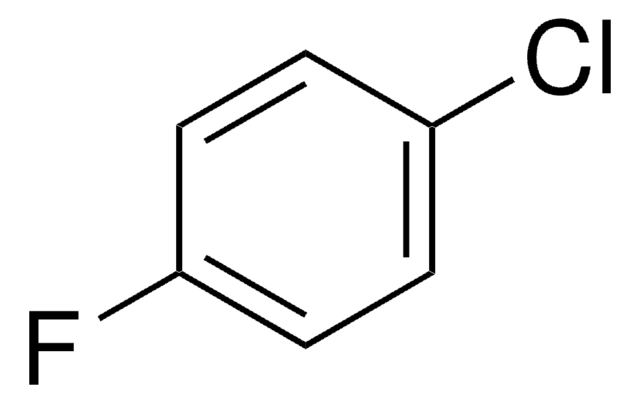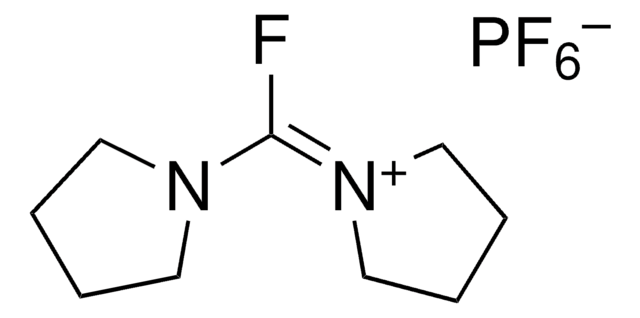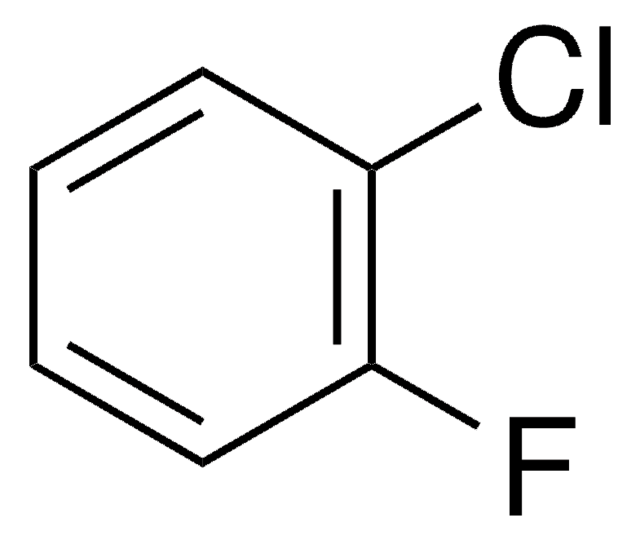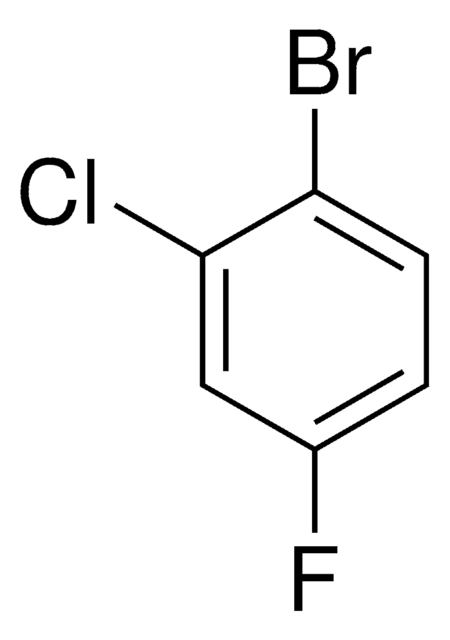Select a Size
Select a Size
About This Item
Recommended Products
Assay
98%
refractive index
n20/D 1.475 (lit.)
bp
126 °C (lit.)
density
1.33 g/mL at 25 °C (lit.)
SMILES string
Fc1ccc(Cl)cc1F
InChI
1S/C6H3ClF2/c7-4-1-2-5(8)6(9)3-4/h1-3H
InChI key
OPQMRQYYRSTBME-UHFFFAOYSA-N
Looking for similar products? Visit Product Comparison Guide
Signal Word
Warning
Hazard Statements
Precautionary Statements
Hazard Classifications
Acute Tox. 4 Oral - Eye Irrit. 2 - Flam. Liq. 3 - Skin Irrit. 2 - STOT SE 3
Target Organs
Respiratory system
Storage Class Code
3 - Flammable liquids
WGK
WGK 3
Flash Point(F)
96.0 °F - closed cup
Flash Point(C)
35.56 °C - closed cup
Personal Protective Equipment
Choose from one of the most recent versions:
Already Own This Product?
Find documentation for the products that you have recently purchased in the Document Library.
Our team of scientists has experience in all areas of research including Life Science, Material Science, Chemical Synthesis, Chromatography, Analytical and many others.
Contact Technical Service










